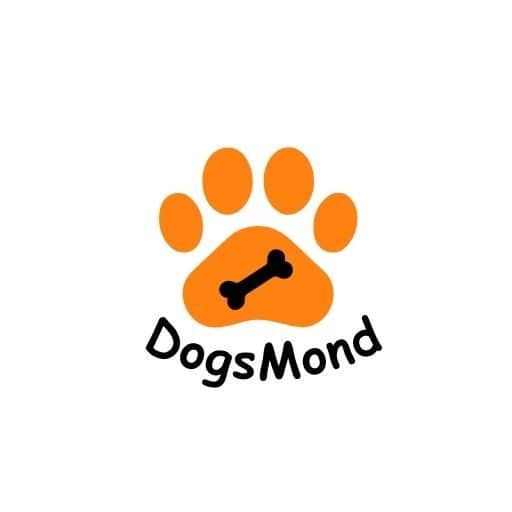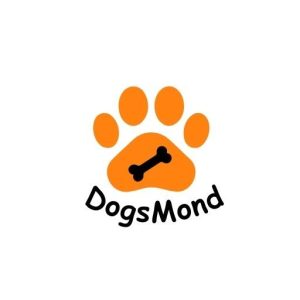Labradors have specific dietary requirements and preferences. As a pet owner, you may often wonder whether or not it is safe for your dog to consume milk. When I first started fostering Labradors, I believed that milk was a safe drink for them, but when one of them vomited, I became worried. So, the question arises – can Labradors drink milk?
While Labradors can technically drink milk, remember that some dogs may be lactose intolerant. It’s advisable to do a 1:3 ratio of milk to water and feed a small portion of milk to check for any intolerance. If there are symptoms, then you can choose lactose-free milk.
I can sense what you’re thinking. Why are some Labradors lactose intolerant? What are the alternatives? Did I get your doubts right?
For your Labrador, here’s a comprehensive guide to choosing the right approach for feeding milk.
Let’s get started!

Nutrition Benefits of Milk for Dogs
Milk is rich in proteins, fats, vitamins, and minerals, which can indeed provide some health benefits for your dog.
Here are some key nutrients found in milk:
- Proteins: Building blocks for maintaining strong muscles and tissues
- Fats: Source of energy and support for healthy skin/coat
- Vitamins: Essential for proper immune system function
- Minerals: Crucial for strong bones and teeth
US Dairy also states that vitamin B in milk helps fuel the body and increases energy levels.
However, some dogs may have lactose intolerance or milk allergies. So, letting your Labrador drink milk completely isn’t the first step.
But if your dog doesn’t have a milk sensitivity, here’s a table to give more detailed information on milk’s nutritional content, along with the ideal daily nutrient requirements for a typical Labrador:
| Nutrient Type | Quantity in Milk (per 100ml) | Ideal Daily Requirement for Labrador |
|---|---|---|
| Protein | 3.4g | 46g – 56g |
| Fat | 3.6g | 25g – 40g |
| Calcium | 120mg | 750mg – 1500mg |
| Phosphorus | 93mg | 575mg – 875mg |
| Vitamin D | 1mcg | 5mcg – 10mcg |
| Vitamin A | 30mcg | 300mcg – 1000mcg |
As you can see from the table, milk contains various essential nutrients that can benefit your Labrador. However, that doesn’t mean it’s perfect for your dog. Ideally, it means that milk is nutrient-rich, and you can give it to your dog.
What about lactose levels in other dairy forms? Should everything be ignored?
Whether dogs can drink milk has more to do with their digestive system. Other dairy products like plain yogurt and cheese are easy on the stomach and don’t cause serious issues due to their reduced amount of lactose.
To help you understand the lactose content in each dairy product, check out the table below.
| MILK PRODUCT | LACTOSE CONTENT |
|---|---|
| Milk, condensed | 10-16 |
| Milk, low fat | 4-5 |
| Milk, whole fat (cow, goat, or sheep) | 4-5 |
| Cream, half and half | 4 |
| Cream, light | 4 |
| Cream, sour | 4 |
| Yogurt, whole milk | 4 |
| Ice-cream | 3-8 |
| Buttermilk | 3-5 |
| Cream, whipping | 3 |
| Yogurt, low fat | 2-7 |
| Cheese, ricotta | 1-5 |
| Cheese, cottage, or cream | 1-3 |
| Cheese, mozzarella | 1-3 |
| Butter | 0.5-1 |
| Cheese, feta | 0.5 |
| Cheese, cheddar | 0.1 |
Can Labradors Drink Milk?
Friendly as they may be, your beloved Labrador might not be able to tolerate milk very well. While some dogs can digest milk without any issues, others may experience discomfort or even illness due to lactose intolerance.
In my initial days, I wondered what ‘lactose’ meant as I went by the perception that milk is milk.
Lactose is a sugar found in milk and other dairy products. To properly digest lactose, an enzyme called lactase is required. Some dogs, like certain humans, lack enough lactase to break down lactose, leading to lactose intolerance.
When lactose isn’t digested, it can cause various digestive issues such as gas, vomiting, diarrhea, or even bacterial overgrowth in the gut.

Before you give milk to your Labrador, pay attention to their reaction. If you notice any signs of sensitivity, such as gas, diarrhea, or vomiting, it’s best to avoid milk and dairy products altogether.
Now that you’ve got an idea of how your Labrador might react to milk, let’s understand the safety levels and ideal quantities for various age groups:
| Lab Age | Safety Level | Ideal Quantity |
|---|---|---|
| Puppies | Not safe | 0 mL |
| Adolescent | Low safety | 10-20 mL per day |
| Adult | Moderate safety | 50-100 mL per day |
| Senior | Low safety | 10-20 mL per day |
Keep in mind that these are just general guidelines, and every dog’s tolerance may vary. Discuss with your dog’s dietitian before you set the final meal plan for your Labrador.
How to Feed Milk to Your Labrador
Feeding milk to your Labrador can be a nutritious addition to their diet, but you must do it correctly. You should keep a few things in mind when giving milk to your furry friend.
First, it’s essential to choose the right type of milk. While cow’s milk may seem like the natural choice, many dogs can suffer from an upset stomach.
Goat’s milk is often a better option for your Labrador, as it has lower lactose content and is easier to digest. If your Labrador still has trouble with goat’s milk, you can also consider using a milk formula designed specifically for dogs.
So, now that you have a fair understanding of one possible alternative, let’s head on the right way to feed milk.
When introducing milk into your Labrador’s diet, start with small amounts to see how they react. It’s recommended to do a 1:3 ratio of milk to water. Gradually increase the quantity as they get used to it and ensure they’re not showing any adverse reactions.
Note! Remember to always mix milk with your Labrador’s regular food or give it in between meals so it doesn’t replace necessary nutrients. I’d suggest mixing it with water so it’s properly diluted and simplifies the digestion process.
To make the milk more enjoyable for your Labrador, consider warming it slightly before feeding, as this can help release the natural flavors. But ensure the milk isn’t too warm – test it on your wrist first – as it can scald your Labrador’s mouth.

What Type of Milk Can Labradors Drink?
Over to the most important section of this article!
If not cow’s milk, what else?
I’ve encountered this situation several times until I discovered that formula and milk replacements are readily available on the market.
If you aren’t convinced about feeding formula, here’s a list of alternatives.
Note: Different types of milk can have varying effects on the digestive system of your Labrador.
- Cow’s Milk: The most common type but can leave your lactose-intolerant Labrador prone to stomach upsets if fed inappropriately.
- Goat’s Milk: Goat’s milk is a better option for your Labrador than cow’s milk. It contains less lactose and higher levels of beneficial nutrients like vitamins, minerals, and healthy fats. These elements can help improve your dog’s digestion, making it a more suitable choice for your canine companion.
- Lactose-Free Milk: If your Labrador is lactose intolerant or has trouble digesting regular milk, lactose-free milk could be a good alternative. Lactose-free milk is processed to remove the lactose. Some dog owners feel that lactose-free milk doesn’t contain sufficient nutrients and may often still contain small proportions of lactose. So, apply due diligence in this process.
Dog-Specific Milk: Some pet stores and online retailers sell milk formulated specially for dogs. These products are designed to be easily digestible for your Lab and have added nutrients and supplements that are beneficial for their health. Look for products labeled as dog-specific milk or puppy milk.
Remember, any milk product should be given to your Labrador in moderation as a treat, not a primary food source. If you’re unsure about introducing a new type of milk to your dog’s diet, you should consult an expert.

Benefits of Milk for Labradors
Labradors can enjoy certain benefits from consuming milk in moderation. Milk can provide essential nutrients, vitamins, and energy that can help keep your Lab healthy.
Below is a list of some potential benefits of milk consumption for your dog:
- Calcium: Milk is a rich source of calcium, which is essential for your Labrador’s bone development and maintenance. A proper calcium intake can help your dog keep a strong skeletal structure.
- Protein: Milk is packed with protein that can aid in muscle development and repair. Moderate amounts of protein from milk can help support your Labrador’s muscle growth, strength, and overall health.
- Vitamins: Milk contains several vitamins, such as vitamin D and B complex vitamins, which can help promote healthy skin, fur, and immune system function for your Labrador.
However, despite these potential benefits, you must consider if your Labrador can safely consume milk. Additionally, excessive milk consumption can contribute to obesity or weight gain due to its high fat content.
To determine the best course of action for including milk in your Labrador’s diet, consider the following factors:
- Amount: Start with a small amount of milk to see how your Labrador reacts. If tolerated well, you can gradually increase the amount, but always in moderation.
- Fat: Opt for lower-fat milk options if your Labrador is prone to obesity or weight gain.
- Condition: Be aware of your Labrador’s individual condition, including any allergies or lactose intolerance symptoms.
These are some basic rules that I follow to maximize the health of my little ones at home.
Risks of Milk for Labradors
I’ve heard many dog owners being unconvinced about milk not being for every dog out there. Too much milk consumption can sometimes result in high fat levels and lethargy. As a result, it can risk your Labrador’s health.
There are several concerns when it comes to feeding milk to Labradors, which I will outline below:
- Lactose intolerance: Most dogs, including Labradors, are lactose intolerant to some degree. Drinking milk can lead to gastrointestinal discomfort, diarrhea, and gas in your Labrador. You don’t want your fur buddy to experience discomfort due to the consumption of milk.
- Allergic reactions: Some Labradors can show allergic reactions to milk. The reaction can lead to skin irritations, itching, or even more severe symptoms such as breathing difficulties. It is essential to identify if your Lab has an allergy to milk and refrain from giving it to them.
- Weight gain: Milk is calorie-dense, and consuming it in large quantities could result in weight gain for your Labrador. Obesity in dogs can lead to various health issues, such as diabetes, heart problems, and joint issues. So, it’s better to skip too much milk and maintain a healthy weight.
- Inappropriate nutrition: Lastly, milk is not a complete source of nutrition for Labradors. Their diet should primarily consist of high-quality dog food that meets their specific dietary requirements. Substituting milk for more nutritious options might not be ideal for your dog’s health.
So remember, while treating your Labrador with a bowl of milk might be tempting, it’s best to consider the potential risks involved.

How Can You Tell If a Labrador Has a Bad Reaction to Milk?
Labradors’ dietary requirements are unique. Milk is certainly playing a small role in their regular diet. If you’re feeding milk to your Labrador, here’s a quick check that you can do to avoid the possibility of bad reactions.
Some common symptoms indicating an adverse reaction to milk include:
- Diarrhea
- Vomiting
- Bloating
- Excessive gas
- Skin irritations
- Frequent scratching
If you notice any of these symptoms after your Labrador consumes milk, discontinue feeding it to them and consider consulting your veterinarian for advice.
You can replace milk with other supplements. That goes for adult Labradors.
So, what about puppies?
For weaned puppies, it’s critical to provide proper nutrition that supports their growth and development. Although milk from their mother is vital during the initial stages, once a puppy is weaned, transitioning them to puppy-specific dog food will ensure a balanced, healthy diet.
FAQs
Can Labradors drink coconut milk?
Labradors can drink coconut milk in small amounts. Coconut milk may even offer a few health benefits, such as helping fight viruses, improving the immune system, and adding shine to their coat. However, coconut milk is often overly processed and can contain several additives that may not be good for your dog. Additionally, it still has lactose, so it’s best to avoid feeding if your dog has a dairy sensitivity.
Can Labradors drink oat milk?
Labradors can drink oat milk in moderation if it is plain and unsweetened. It is also lactose-free. However, please note that milk, including oat milk, is not a necessary part of a dog’s diet, and most dogs do not need it once they are weaned.
Can I give milk to my Labrador for an upset stomach?
Giving milk to your Labrador for an upset stomach isn’t advisable. If he’s already lactose intolerant, it can worsen their upset stomach. Instead, opt for more dog-friendly remedies, such as feeding them a bland diet of rice and boiled chicken.
Can Labradors drink almond milk?
Labradors can drink plain, unsweetened almond milk in small amounts. It is a good milk substitute if your dog is lactose intolerant. However, some manufacturers add sweeteners, such as xylitol, which is toxic to dogs, so only give your dog pure, unsweetened almond milk with no other additives.
Can Labradors drink soy milk?
Labradors can drink soy milk in moderation. Soy milk is a lactose-free and plant-based alternative to cow’s milk, making it a good option for dogs that are lactose intolerant or have a milk allergy. However, while soy milk is non-toxic, some dogs may be sensitive to soy or other ingredients in the milk. As with any new food, it’s best to introduce it slowly and in small amounts to see how your dog reacts to it.

